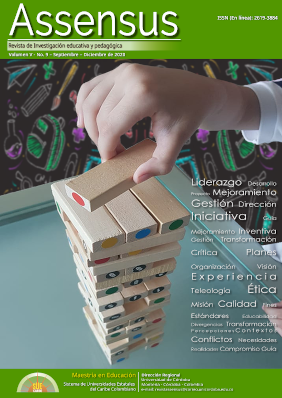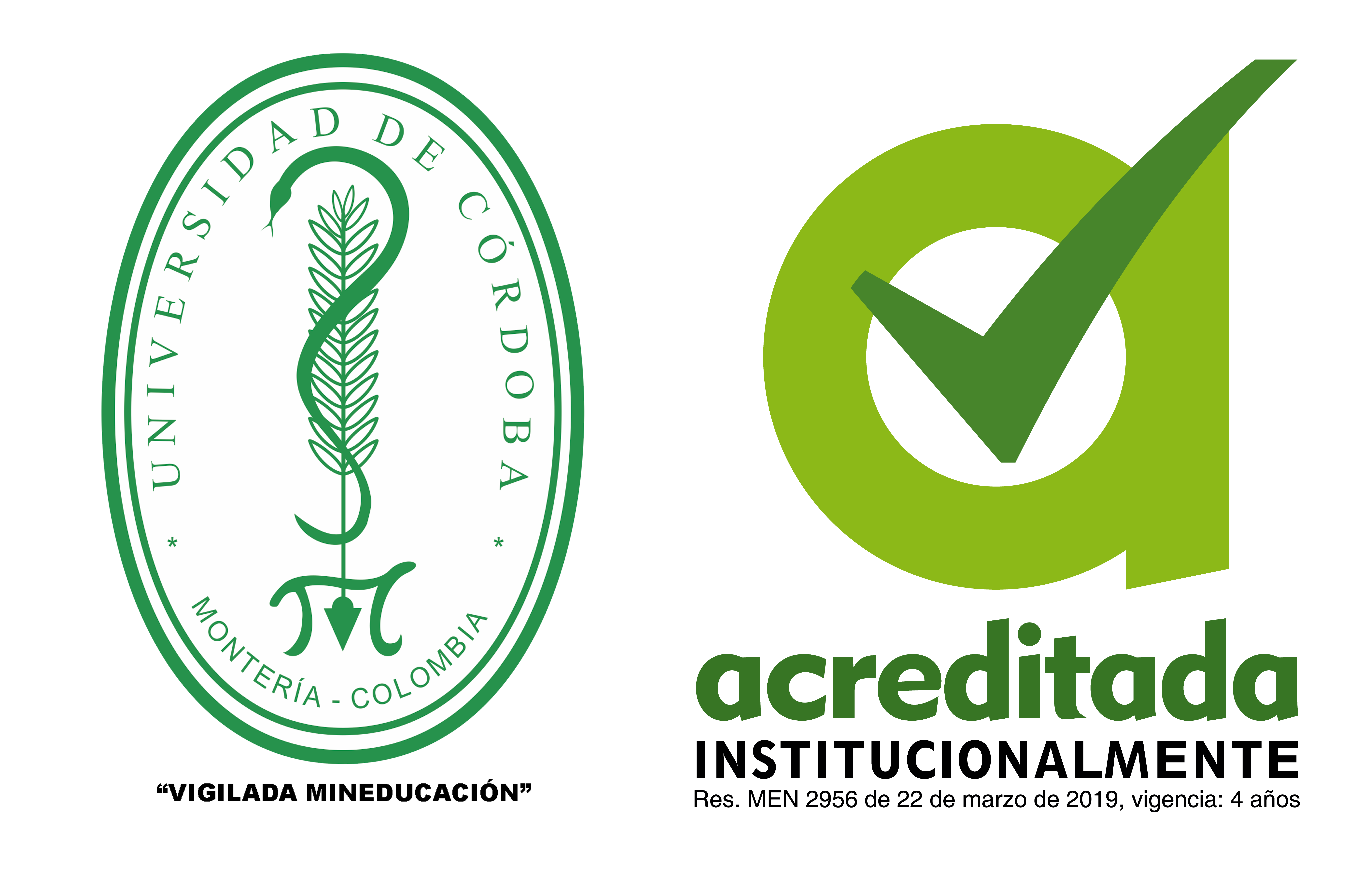Perceptions of teachers and school chiefs, about the transformation processes of institutional improvement plans
Percepciones de los docentes y directivos sobre los procesos de transformación de los planes de mejoramiento institucional
The Assensus journal has a Creative Commons license. The citation, use and partial or total reproduction of the contents is authorized by citing sources. For more information, see https://creativecommons.org/licenses/by-sa/4.0/deed.en
Show authors biography
This article shows the teaching and managerial perceptions of the transformation processes of the Institutional Improvement Plans (PMI). Part of the reflective and collective analysis of the PMIs of the educational institutions Policarpa Salavarrieta and Victoria Manzur de Montería, for the generation of actions leading to the strengthening of the institutional and pedagogical processes. A qualitative research method was used, with a Research-Action methodological design, organized in four phases: an approach that gives rise to research purposes, as a result of the review and analysis of PMIs; Reflection provided guidelines for the design of an action plan, product of the discussion group and the strengthening of the theoretical framework; application as an approach to the reality of the PMI and its relevance in educational institutions, finally the evaluation, which provides the result obtained. The study shows varied perceptions about the PMI, in relation to the participation of teachers and managers, showing a low level of performance; but, the dynamics implemented, allowed to glimpse changes in the adoption, elaboration and execution of the PMI, allowing to give a new meaning to the improvement actions in the educational establishments under study.
Article visits 760 | PDF visits
Downloads
- Acosta, M., & Osuna, J. (2015). Significación del plan de mejoramiento institucional, en la institución educativa rural Luis Antonio Duque Peña, de la ciudad de Girardot –Cundinamarca. Girardot –Cundinamarca: Gestion Educativa.
- Andersson, B., & Strander , K. (2004). Percepciones de la escuela y futura adaptación a la vida: un estudio longitudinal entre las edades de 18 y 25 años. Revista escandinava de investigación educativa, 459-476.
- Altablero. (09 de 2007). La gestión educativa es la vía al mejoramiento de la educación.: https://www.mineducacion.gov.co/1621/article-137440.html
- Avaca, P., & De León, E. (2012). Planes de mejora institucionales: ¿se constituyen en verdaderos desafíos para las escuelas secundarias? un abordaje evaluativo. San Luis Argentina: Universidad Nacional de San Luis.
- Barón, R., & Byrne, D. (2005). Psicología social. México: Pearson. Prentice Hall.
- Calvo, G. (1996). Los proyectos educativos institucionales . Recuperado el 22 de 05 de 2019, de revistas.pedagogica.edu.co: http://revistas.pedagogica.edu.co/index.php/RCE/article/download/5400/4427
- Castañeda, E. (2009). Las condiciones sociales para el aprendizaje en la relación equidad social y educación. En N. López, De relaciones, actores y territorios: hacia nuevas políticas para la educación en América Latina. Buenos Aires (Argentina): IIPE-UNESCO Sede Regional Buenos Aires.
- Castañeda, A. (2015). Planes de mejoramiento institucional, pensados desde el liderazgo que implica la gestión educativa. Manizales - Caldas: Universidad de Manizales.
- Fundación Empresarios por la Educación . (2018). Ideas para tejer: Reflexiones sobre la educación en Colombia 2010-2018. Bogota Colombia: Fundación ONG.
- Kemmis, S., & McTaggar, R. (1988). Cómo planificar la investigación acción. Barcelona: Laertes.
- Nespor, J. (1987). El papel de las creencias en la práctica de la enseñanza. Revista de estudios curriculares, 317-328.
- Pajares, M. (1992). Creencias de los docentes e investigación educativa: limpiar una construcción desordenada. Revisión de la investigación educativa, 307-332.
- MEN. (1994). Ley General de la Educación.
- MEN. (2004). Planes de Mejoramiento ¿Y ahora Cómo mejoramos? Guia n° 5. Planes de Mejoramiento ¿Y ahora Cómo mejoramos? Bogotá, Colombia: Impresiones Periódicas S.A.
- MEN. (2008). Guía para el mejoramiento institucional de la autoevaluación al plan de mejoramiento: https://www.mineducacion.gov.co/1759/articles-177745_archivo_pdf.pdf
- Ojeda, K., & Romero , S. (2014). Plan de mejoramiento Institucional como dispositivo de gestión participativa para el fortalecimiento de la calidad educativa. Cartagena: Universidad de la Costa CUC.
- Quiroga, M. (2014). Liderar la implementación del plan de mejora escolar oportunidades, desafíos y dificultades. Un estudio de caso. Sevilla ( España ): Universidad de Sevilla ( España ).
- Román, M., & Murillo, F. (2004). Retos en la evaluación de la calidad de la educación en américa latina. Revista iberoamericana de educación, 97-120.
- Rosero, A. (29 de junio de 2012). Percepciones y prácticas de gestión de directivos y docentes en instituciones educativas del municipio de pasto. Revista UNIMAR(59), 41-54.
- Solar, M., & Díaz, C. (2009). El profesor universitario: construcción de su saber pedagógico e identidad profesional a partir de sus cogniciones y creencias. Revista Calidad en la Educación, 207-232.
- Vander-Zanden, J. (1990). Manual de psicología social. Madrid: Paidos Iberica.



